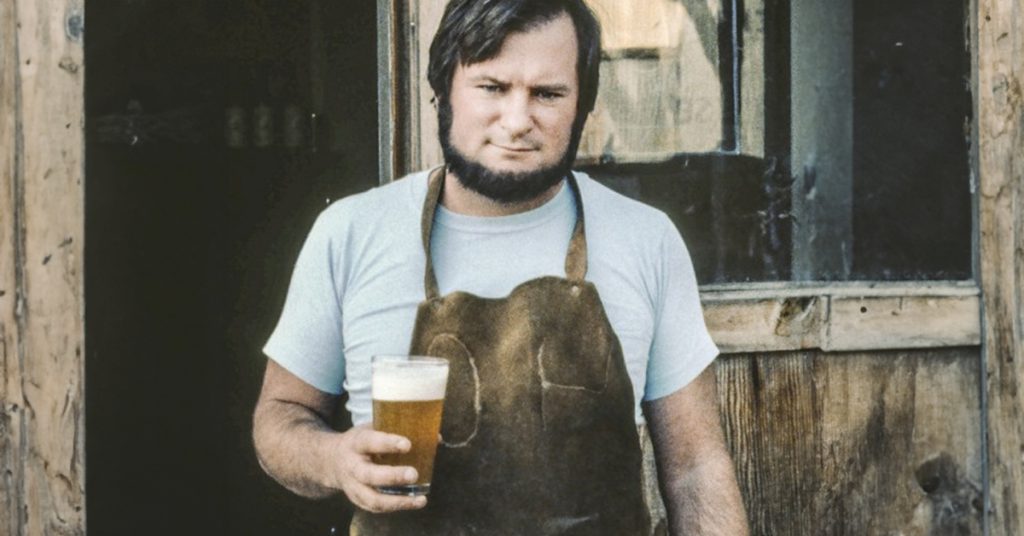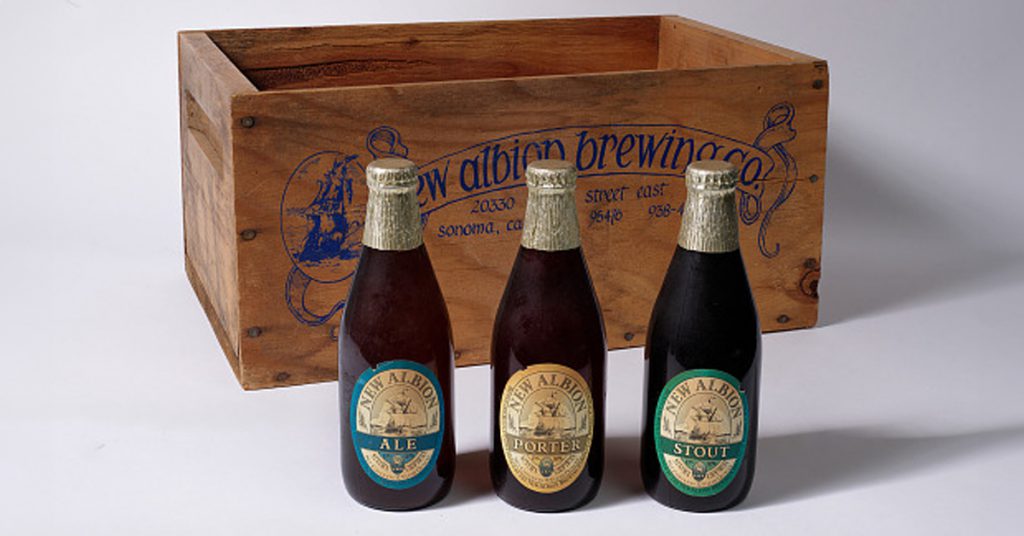
Jack McAuliffe, who is credited with helping start the modern craft beer movement by co-founding New Albion Brewing (Sonoma, CA) in 1976, died Tuesday at age 80 at his home in Arkansas, his daughter Renee DeLuca shared.
“Jack’s place among United States craft brewers as a change maker and inspiration will be a part of the beer world for generations,” DeLuca wrote.
Like many other early craft pioneers, McAuliffe first encountered fuller-flavored beers while abroad. In McAuliffe’s case, he was stationed in Scotland during his time in the U.S. Navy.
McAuliffe and co-founders Suzy Stern and Jane Zimmerman then cobbled together a brewhouse and bottling equipment from scrap materials and brewed an English-style ale, porter and stout, a nod to Albion’s etymology as an ancient name for the island of Great Britain.
In its six years in operation, New Albion inspired Sierra Nevada founder Ken Grossman, who ran a homebrew shop in Northern California at the time of his visit to New Albion, according to a profile on CraftBeer.com.
University of California – Davis brewing professor Michael Lewis added visits and tastings at New Albion to his curriculum because it introduced students to the idea of smaller-scale brewing, CraftBeer.com reported.
The uniqueness of its small size contributed to New Albion’s demise. The brewery struggled to secure funding, in part because the craft brewing industry did not exist at the time and lenders didn’t understand the business model, having only macrobreweries as a comparative model.
“They just didn’t understand what I was doing, they couldn’t comprehend the idea of a small brewery,” McAuliffe told CraftBeer.com. “It was like I arrived from Mars and I was speaking Martian.”

When New Albion opened, it and San Francisco’s Anchor Brewing were likely the only two microbreweries in the country, according to historical data from the Brewers Association (BA). By the time New Albion closed in 1982, the number of craft breweries quintupled to 10.
Today, California ranks No. 1 in number of craft breweries (946), production volume (3.737 million barrels) and economic impact ($8.269 billion), according to the BA.
Thirty years after New Albion closed, Boston Beer’s Samuel Adams brought back New Albion Ale as a nationwide special release and gave all proceeds to McAuliffe. They introduced the revival at the Great American Beer Festival and supported the launch with a cross-country tour, DeLuca wrote.
“Jack was brewing craft beer when nothing was easy,” Boston Beer co-founder Jim Koch said in a press release at the time. “Nobody made small-scale brewing equipment, nobody wanted to invest, retailers and distributors didn’t want your beer, drinkers couldn’t understand why the beer didn’t taste ‘normal.’ It was so different from today.”
Since then, DeLuca has produced batches of the beer under contract with BrewDog and Raleigh Brewing.
“He was happy to see his brand live on in present times,” DeLuca wrote of her father.
New Albion and McAuliffe were enshrined in the Brewing a Revolution exhibit in the Smithsonian Institute’s National Museum of American History, which DeLuca called “one of the highlights” for McAuliffe.
Homebrewers and craft beer enthusiasts alike can thank McAuliffe for his early contributions to the industry, American Homebrewers Association executive director Julia Herz said in a statement to Brewbound.
“If you’re into beer, then Jack McAuliffe’s small but mighty California brewery, which literally only survived six years, fueled everyone’s love of beer,” she said. “The influence of Jack and his surviving daughter, Renee DeLuca, looms large. Without Jack, I’m not sure this whole ‘craft beer thing’ would have taken off, and he used homebrewing as a means to get started. He will be very missed.”
Editor’s note: This story was updated at 3:30 p.m. ET on July 16 to include comment from American Homebrewers Association executive director Julia Herz.